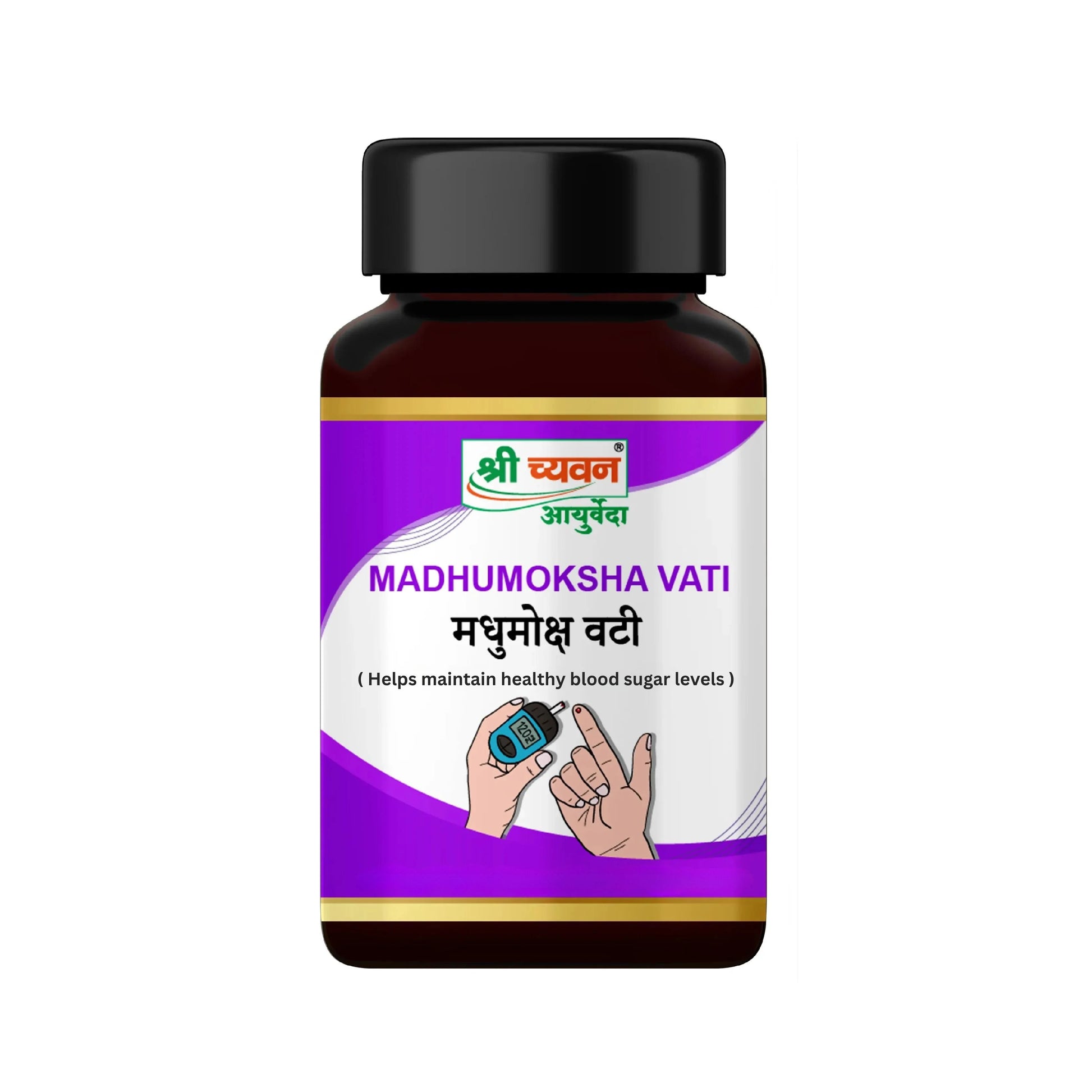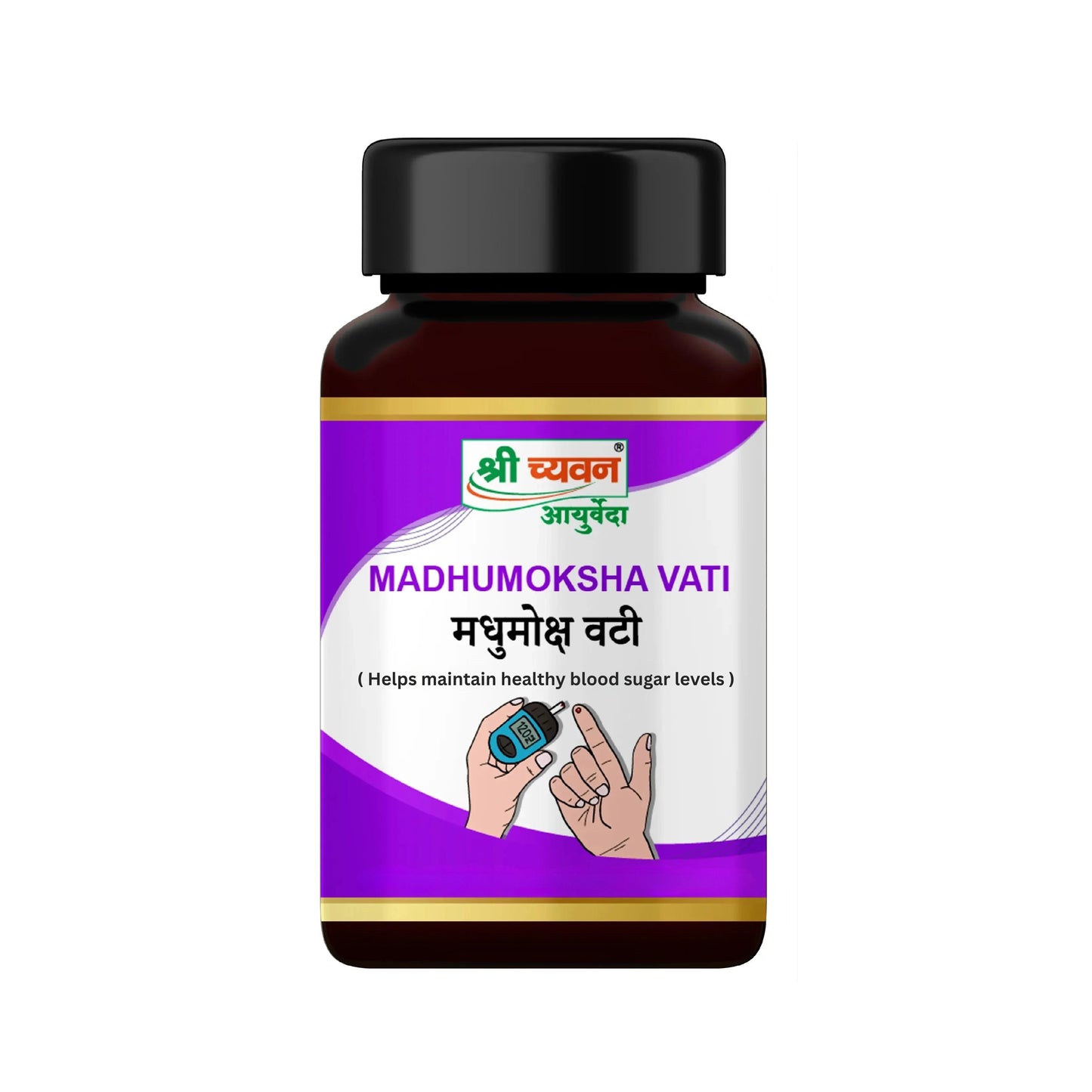What is Diabetes?
In Ayurveda, diabetes is referred to as "Madhumeha," where "Madhu" means honey and "Meha" means urine. Madhumeha is considered a metabolic disorder that closely resembles the modern understanding of diabetes mellitus. Ayurveda views diabetes as a condition resulting from an imbalance in the doshas, primarily Kapha and Vata, along with a disturbance in the digestive fire (Agni) and impaired tissue metabolism (Dhatu Agni).
Types of diabetes, classified on the basis of dominant doshas:
- Kaphaja Madhumeha: This type is characterized by an imbalance of Kapha dosha. It is associated with excessive mucous production, obesity, and lethargy.
- Pittaja Madhumeha: In this type, an imbalance of Pitta dosha predominates. It is linked to symptoms like excessive thirst, burning sensation, and inflammation.
- Vataja Madhumeha: Vata dosha imbalance is prominent in this type. It is associated with symptoms such as excessive thirst, dryness, and neurological complications.
- Sannipatika Madhumeha: This type involves a combined imbalance of all three doshas - Vata, Pitta, and Kapha. It presents with a mix of symptoms from the other types.
What are the causes of Diabetes?
According to Ayurveda, the causes of diabetes (Madhumeha) are attributed to various factors that disrupt the balance of doshas (Vata, Pitta, Kapha) and lead to impaired metabolic processes. The main causes include:
- Unhealthy Diet: Consuming excessive amounts of sweet, heavy, and oily foods can lead to an imbalance of Kapha and Pitta doshas, contributing to diabetes.
- Sedentary Lifestyle: Lack of physical activity and a sedentary lifestyle can disrupt the balance of all three doshas, particularly Kapha and Vata.
- Genetic Predisposition: A family history of diabetes can increase the risk of developing the condition, according to Ayurveda.
- Excessive Stress: Chronic stress can aggravate Vata dosha and disturb the body's natural equilibrium, potentially leading to diabetes.
- Poor Digestion: Weak digestion (Agni) can result in the accumulation of toxins (ama) in the body, contributing to imbalances in doshas and the development of diabetes.
- Obesity: Excessive weight and accumulation of adipose tissue are associated with an imbalance of Kapha dosha and an increased risk of diabetes.
- Imbalance of Doshas: Any imbalance or vitiation of Vata, Pitta, or Kapha doshas can disrupt metabolic processes and lead to diabetes.
- Insulin Resistance: In Ayurvedic terms, impaired tissue metabolism (Dhatu Agni) can result in poor utilization of glucose by the cells, leading to elevated blood sugar levels.
- Excessive Sweet Taste: Overindulgence in sweet tastes can aggravate Kapha dosha and contribute to diabetes.
- Lack of Ojas: Ojas is considered the essence of all the body's tissues. If it is depleted due to various factors, it can contribute to the development of diabetes.
Diabetes Ayurvedic Medicine - Madhumoksha Vati
Shri Chyawan Ayurveda has carefully formulated Madhumoksha Vati to help you control your blood sugar levels. It is an ideal ayurvedic medicine for Diabetics.
Madhumoksha Vati - Shri Chyawan Ayurveda's Madhumoksha Vati helps control the Blood sugar in the body and removes the problems caused by it. It is an ideal ayurvedic medicine for sugar. Madhumoksha Vati aids in bringing control over the uneven sugar levels in your body. It is a natural blend of herbal ingredients to even your sugar levels and strengthen the immune system. All the ingredients in Madhumoksha Vati help regulate the glucose metabolism and acts as the best supplements for diabetes.
Madhumoksha Vati Ingredients & it’s importance:
- Neem Panchang (Azadirachta indica): Neem is known for its bitter taste and is considered beneficial for managing blood sugar levels. It may help improve insulin sensitivity, reduce glucose absorption in the intestines, and support overall metabolic health.
- Jamun Beej (Syzygium cumini): Jamun seeds, also known as black plum seeds, are rich in compounds that have been suggested to lower blood sugar levels. They may help enhance insulin activity, regulate glucose metabolism, and reduce oxidative stress.
- Gudmar (Gymnema sylvestre): Gudmar is often referred to as the "sugar destroyer" due to its potential to reduce sugar cravings and support healthy blood sugar levels. It is believed to influence glucose absorption in the intestines and improve insulin secretion.
- Karela Beej (Momordica charantia): Karela, or bitter gourd, is well-known for its anti-diabetic properties. It contains compounds that mimic the action of insulin and may help improve insulin sensitivity, leading to better glucose utilization.
- Amla (Emblica officinalis): Amla, also known as Indian gooseberry, is rich in antioxidants and vitamin C. It may help prevent oxidative stress and inflammation associated with diabetes and contribute to overall metabolic balance.
- Talmakhana (Hygrophila auriculata): Talmakhana is believed to have diuretic and anti-diabetic properties. It may aid in managing blood sugar levels by supporting kidney function and promoting the removal of excess glucose through urine.
- Baheda (Terminalia bellirica): Baheda, also known as bibhitaki, is one of the three fruits in the traditional Ayurvedic formulation Triphala. It supports digestive health and may indirectly contribute to diabetes management by promoting healthy digestion and nutrient absorption.
How to Use: Madhumoksha Vati's 1 tablet must be consumed in morning and evening after breakfast and snacks respectively. It is advisable to continue this course for 3 months for best results.
Madhumoksh Vati Benefits:
- Controls the blood sugar levels naturally
- Helps in boosting metabolism
- Controls weight
- Provide relief from the problem of frequent urination
- Enhances your immune system and energy levels
- Aids in the problem of sexual debility due to diabetes
- Prevents the organs from side-effects arising out of diabetes
- Aids in healthy digestion process
- Strengthens the pancreas
- Improves insulin performance
- It is completely safe and do not cause any side-effects
- Prevents major complications arising from diabetes
Ayurvedic management of diabetes involves a holistic approach that includes dietary changes, herbal remedies, lifestyle modifications and practices to balance the doshas.









